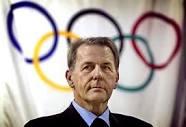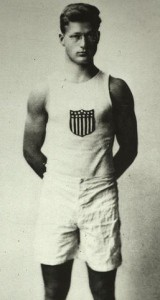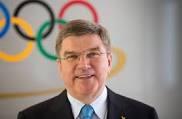Last week, the IOC announced it had provisionally recognized the NOC of Kosovo, making it possible for the breakaway nation to compete in Rio 2016. Kosovo is now one of three nations not broadly recognized by UN-members to be affiliated with the IOC, after the Republic of China (which is a member under the name of Chinese Taipei) and Palestine (which is a UN-observer since 2012).
Despite its status, Kosovo already has some Olympic history, as do various other un-recognized states in the world. We’ll explore that history below. To determine this countries on this list, we have re-used the criteria as used in the Wikipedia article “List of states with limited recognition“. These criteria hold that the country should either be recognized by at least one UN member state, or it should meet the definition of statehood formed in the 1933 Montevideo Convention on the Rights and Duties of States.
Abkhazia
Officially, Abkhazia is the north-western tip of Georgia. In practice, the republic seceded after a brief war in the early 1990s. In the wake of the South Ossetia War during the Beijing Olympics, Russia formally recognized Abkhazia. In addition to Russia, only Nicaragua, Venezuela and Nauru have recognized the Caucasian nation.
Several Abkhazians have competed in the Olympics. The most famous is three-time triple jump champion Viktor Saneyev, who was born in Sukhumi, the capital of Abkhazia. Saneyev won Olympic gold in 1968, 1972 and 1976, ending his Olympic career with a silver in Moscow 1980. At those same Olympics, another Sukhumi-born athlete won gold: volleyball player Vladimir Dorokhov. Since the break-up of the Soviet Union, several Abkhaz-born competitors have represented Georgia, Russia and Ukraine.
Marika Pertakhiya was the only competitor of Abkhaz descent competing in Sochi, just kilometers from the Abkhaz border.
The 2014 Sochi Winter Olympics opened in Fisht Stadium, just a few kilometers from the Russian-Abkhaz border. Abkhazia was not allowed to compete, but one Abkhaz-born athlete competed: freestyle skier Marika Pertakhiya. This even caused a minor incident, as the Sochi official site originally listed her place of birth as Gali, Republic of Abkhazia, Russia – which was corrected to Gali, Republic of Abkhazia, Georgia after complaints of the Georgian Olympic Committee.
Kosovo
Kosovo is populated largely by people of Albanian descent. They have attempted to gain independence since the break-up of Yugoslavia in 1992. The conflict with Serbia came to a head in 1999, when NATO intervened and the area eventually came under United Nations administration. The Republic of Kosovo declared its independence of Serbia in 2008, which has met with broad but far from universal recognition.
Kelmendi, judo world champion, is Kosovo’s best known athlete.
A group of IFs has recognized Kosovo (archery, judo, sailing, table tennis and modern pentathlon), while others have granted provisional or associate membership. This has led to the IOC recognizing the Kosovan NOC. Previously, the IOC declined Kosovan athletes the right to compete as Individual Olympic Athletes under the Olympic Flag. At the London 2012 Olympics, this forced judoka Maljinda Kelmendi to represent Albania. In 2013, she won the world title as a Kosovan.
Prior to Kelmendi, several Kosovars had already competed at the Olympics. For example, the football team that won the gold medal in 1960 featured three players born in what is now Kosovo (Milutin Šoškić, Vladimir Durković and Fahrudin Jusufi). Boxer Aziz Salihu won a bronze in Los Angeles 1984. Two Kosovo-born athletes who fled the country have also won bronze medals, both for Germany: Luan Krasniqi (boxing) and Lira Bajramaj (football).
Nagorno-Karabakh
De jure part of Azerbaijan, Nagorno-Karabakh is a region of which 95% of the population is ethnically Armenian. This has frequently led to disputes, culminating in a declaration of independence in 1991. A three year war followed, which ended with a cease-fire that left Nagorno-Karabakh effectively independent but unrecognized by the international community.
Kifayət Qasımova, the most recent Olympian from Nagorno-Karabach.
While Nagorno-Karabakh has national football team – it’s first match was a 1-1 draw with Abkhazia – there are few international sporting achievements to be mentioned. We’ve been able to trace two Olympians who were born in the area that is claimed as part of Nagorno-Karabakh. Wrestler Nelson Davydian won a silver medal in 1976, although he moved out of Nagorno Karabach to Chechnya (and later Ukraine) as a child. Kifayət Qasımova, a judoka at the 2008 and 2012 Games, was also born in what is now Nagorno-Karabach controlled territory.
Northern Cyprus
Cyprus became independent from the United Kingdom in 1960, but after a coup attempt in 1974 by the Greek junta, Turkey invaded the island in order to protect the Turkish-Cypriot citizens. It captured the northern third of the island, and in 1975 the Turkish Republic of Northern Cyprus was officially proclaimed. Only recognized internationally by Turkey, the nation is heavily dependent on Turkey.
Meliz Redif (right) is the first Northern Cypriot Olympian.
The state has a National Olympic Committee, but it is not recognized by the IOC. Cyprus itself did not compete in the Olympics until 1980, but various Cypriot competitors have worn Greek colors since 1896. Some of these came from what is now Northern Cyprus, such as Famagusta, but these were all Greek-Cypriots. In 2012, the first Turkish-Cypriot athlete competed at the Olympics, unsurprisingly representing Turkey. Meliz Redif was a member of the Turkish 4×400 m relay team that was eliminated in the semi-finals. A more famous Olympian with ties to Northern Cyprus is British javelin thrower Fatima Whitbread. A medallist in 1984 and 1988, she was born to a Greek-Cypriot mother and a Turkish-Cypriot father.
Sahrawi Arab Democratic Republic
An insurgence in the Spanish colony of Western (or Spanish) Sahara saw Spain forced to withdraw from the territory in 1976. Despite a judgment from the International Court of Justice, Spain had agreed to cede parts of the land to both Morocco and Mauritania. Independence fighters of the Polisario movement declared independence and managed to oust the Mauritanians. A cease-fire between the Moroccos and the Sahrawi Arab Democratic Republic holds since 1991, but the plan to hold a referendum on independence has not been executed.
Blind Paralympic swimmer Enhamed Enhamed, the most successful athlete from Sahrawi.
While Sahrawi does have an unrecognised national football team, we are unaware of an Olympic committee, or of any Olympic athletes with a Sahrawi background. Runner Salah Ameidan was a part of the Moroccan team until he unfurled the outlawed Sahrawi flag at a race in France. He hopes to represent his nation in Rio de Janeiro, but chances that he will succeed are small. At the 2008 Paralympics, the blind swimmer Enhamed Enhamed, who is of Sahrawi descent but was born in Spain, won four gold medals.
Somaliland
The northern part of Somalia, Somaliland declared independence when the central government in Somalia collapsed in 1991. While the separatist government has firm control over its territory, it remains unrecognized by the international community. The provisional Somaliland National Olympic Committee, founded in late 2013, shares that fate.
Abdi Bile won the 1,500 m in the 1987 World Championships.
Records on the origins of athletes from Somalia are very much incomplete, but we are aware of at least one competitor born in the territory of Somaliland. The 1987 World Champion over 1,500 m track, Abdi Bile, was born in Las Anod. In 1996 he placed 6th in the Olympic final. The family of two-time Olympic champion in track running, Mo Farah, also hails from Somaliland, and Farah has celebrated some of his victories by carrying a Somaliland flag.
South Ossetia
The situation in South Ossetia is quite similar to that in Abkhazia. South Ossetia declared independence from Georgia in 1991. A war ensued, which was ended by a ceasefire the following year. The conflict flared up in 2004 and 2008, with Russia supporting Ossetian forces on the latter occasion. Like Abkhazia, only Russia, Nicaragua, Venezuela and Nauru recognize the mountainous state.
Although competing for the Unified Team and Greece, Akakios Kakiasvili is the most successful athlete out of South Ossetia.
South Ossetia excels in sports requiring physical strength. Its first native we’ve traced at the Olympics is wrestler Alimbeg Bestayev, who won a bronze for the Soviet Union in 1956; he was later joined by wrestling medalists Besik Kudukhov (Russia) and Gennady Laliyev (Kazakhstan). Shota Chochishvili (USSR) won a gold medal in judo in 1972. The top Olympian born in South Ossetia, however, is Georgian-Greek weightlifter weightlifter Akakios Kakiasvili, a three-time Olympic champion (for the Unified Team and Greece).
Transnistria
Transnistria, a sliver of land east of the Dniestr river, seceded from Moldova during the dissolution of the Soviet Union. A brief 1992 war saw Soviet troops support the Transnistrians, and a ceasefire was signed, de facto granting Transnistria self-control.
Quite a few Olympians hail from what is now Transnistria, chiefly from its capital city Tiraspol. The first of them was volleyball player Valentyna Myshak, who won silver with the USSR. The most successful is Larisa Aleksandrova-Popova, a rower, claiming gold an silver in rowing. Transnistrians have represented several countries since 1992, mostly Moldova. So far, one athlete has been born in “independent” Transnistria: backstroke swimmer Dănilă Artiomov, who competed in London.




